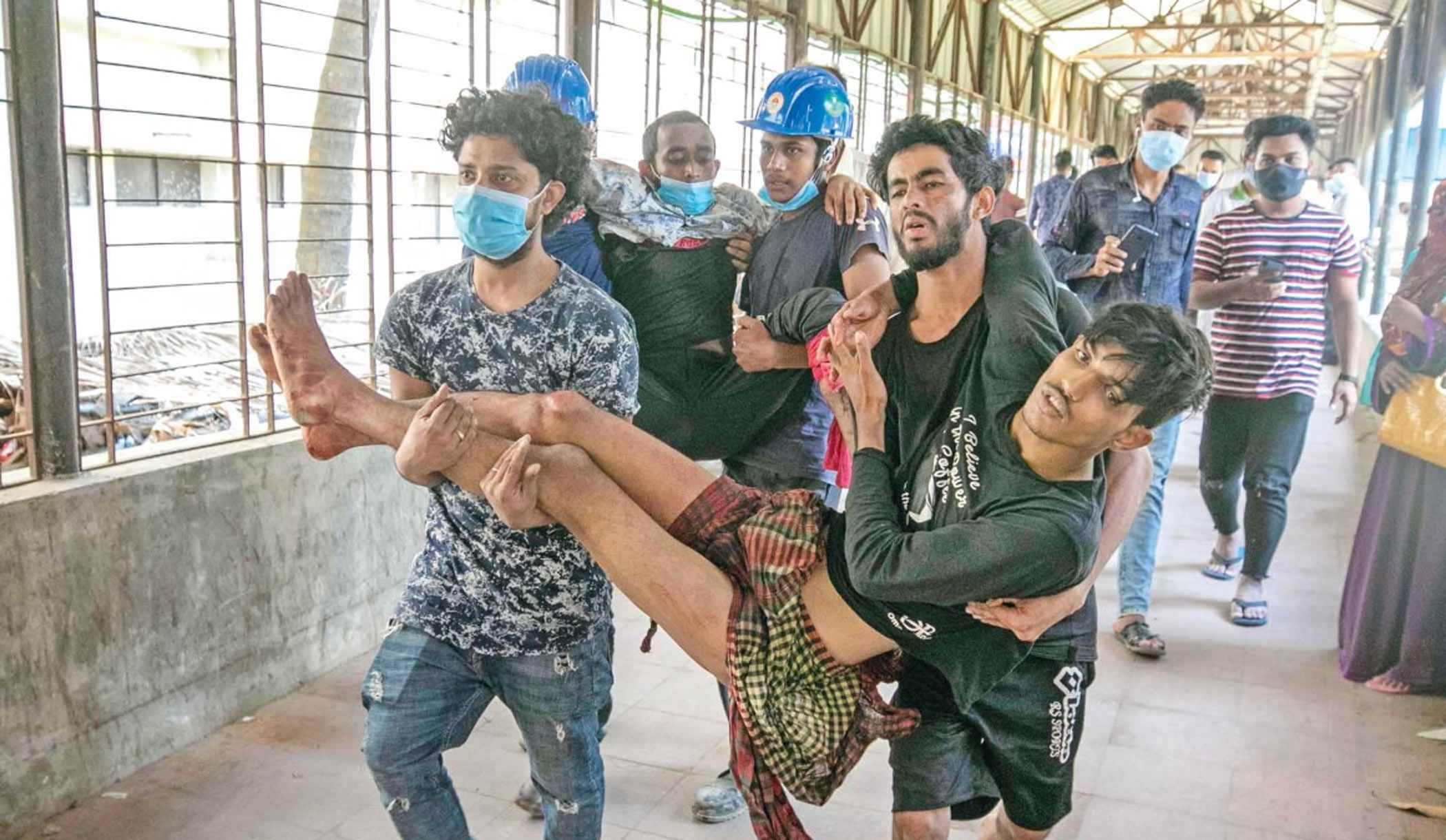The real picture of Bangladeshi corporate

The experience of working for a corporation is not much different globally. Commuting between home and work beating traffic or overcrowded public transit, working eight hours, day in and day out, five days a week—six days a week for jobs that require "essential" extended hours of service, in exchange for a steep remuneration for the extra workday per week. Greece, for instance, introduced a labour law in September 2023 that allowed employers the option of enforcing six-day work weeks by paying an additional 40 percent of the daily wage for every 6th day of the week, according to Al Jazeera.
In Bangladesh, however, it is commonplace for employees to be overworked and underpaid. Poor working conditions here is no breaking news, but it is mostly sidelined or forgotten, reduced to a daily inconvenience. Yet, being ranked as one of the worst 10 countries in the world for eight years in a row in the International Trade Union Confederation's Global Rights Index should give us reason to give this matter a second thought.
Unclear working hours that often extend beyond eight hours, six-day work weeks by default with no additional remunerations, little to no proper guidelines on salary structures leads to the employees' plight. Employees in the lower rungs have little to no wiggle room, and their only motivation, mostly, to continue up the corporate ladder is to someday wear the boot that presses down on them.
Much like most other issues in Bangladesh, no consequence for labour law violation allows employers to treat the law as a mere suggestion, while the exploited labour force bear the consequences. Job descriptions are vague; basic salary structures and gross salaries are often created out whimsically, with the bare minimum being offered. Gross salaries nowadays often start from Tk 25,000 a month, when the rent alone costs between Tk 10,000 and Tk 14,000 in places like Mirpur and Savar in Dhaka.
In my opinion, a "Yes, Sir" culture has also contributed to the deterioration of work culture in Bangladesh. With nearly no objection being raised against the exploitation, local employers are given the opportunity to become bolder with their grips on their employees. What can the employees do to tackle such a situation? If they protest, the management's common response is, "You are free to find a better job with better salary and benefits elsewhere." People feel they have no choice but to sit quietly and bear with the blows.
The legal system does little to help corporate employees. Despite all the blatant violations from corporate employers, when was the last time we read an article underlining something as simple as a case against an employer over improper employment culture? We have barely ever heard of a case being filed successfully against an unscrupulous employer, since such cases are promptly silenced and never see the light of day.
The Bangladesh Labour Act, 2006 has barely seen any useful amendments over the past years, the last amendment securing 120 days of maternity leave for female employees back in 2023. There were amendments to law in 2008, 2010, 2013, 2018, and 2023, the highlights being the 2013 and the 2018 amendments. The amendment made in 2013, the year when the Rana Plaza tragedy occurred, focused on workers' safety and mandatory emergency infrastructure—though still deemed inadequate. 2018's amendment focused on matters like festive bonuses and employee incentives for all jobs and expanding the criteria of jobs to include workers like those of sea-going vessels.
It is not like corporations never get into trouble for mistreatment of employees. It is just that there are so many loopholes in the existing laws that corporations still manage to hop over them with ease, hurriedly changing their policies as soon as trouble brews up.
Perhaps a new labour law should be formulated. Expensive as it may be, nobody can argue with the fact that a satisfied workforce would lead to better productivity, hence better growth. But even then, without proper enforcement of the law, it would not be possible to reverse the dystopia that the Bangladeshi corporate job sector has become. Maybe someday we will get there.
Araf Momen Aka is executive at Radiant Pharmaceuticals Ltd. He can be reached at akaaraf@hotmail.com.
Views expressed in this article are the author's own.
Follow The Daily Star Opinion on Facebook for the latest opinions, commentaries, and analyses by experts and professionals. To contribute your article or letter to The Daily Star Opinion, see our guidelines for submission.




 For all latest news, follow The Daily Star's Google News channel.
For all latest news, follow The Daily Star's Google News channel. 


Comments